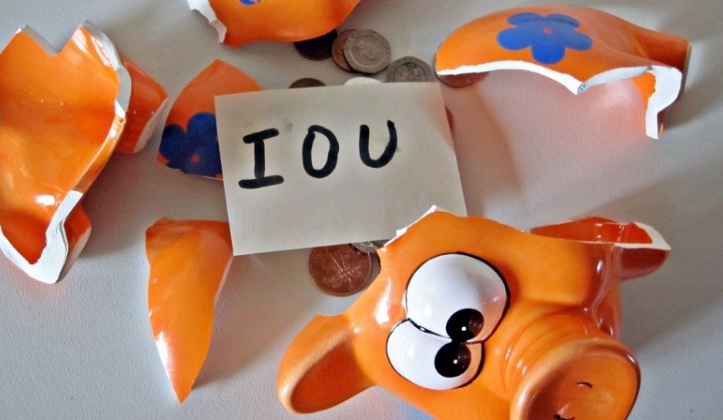Past Due: Dealing with Clients Who Won't Pay

Receivables are the curse of the knowledge economy. If your customers don't pay, it’s not as if you can take back the advice you gave, the code you wrote, or the designs you made, and it's pretty hard to get paid 100% in advance for these things. For individuals and small firms without an accounting department, time spent chasing payment is time not spent billing hours or building business. You don't have control over others' bad actions, but you can set yourself up to avoid them and increase your chances of recovery when they do happen.
Here's what I've learned as a solo practitioner and also as the guy who sat next to Accounting back when I worked for The Man.
Set yourself up to get paid on time from the start of the project:
Assess client credit worthiness. Whenever you do work or deliver product before you get paid, you are giving an unsecured loan to your client. Ask yourself, would you lend this person or company this amount of money? If the answer is anything other than an unqualified "yes" you might want to structure the deal with more upfront payment, or decline it all together.
Put the payment terms in the contract. Don't wait for your first invoice to clarify terms. If they're in the contract, you've got prior understanding and something to wave around if things go bad. Don't bother with late fees - they don't make anybody pay on time and you'll never collect them - but you may consider a discount for early payment, such as "1%/10 NET 30" which means net 30 but 1% off for payment within 10 days. Carrots are easier to digest than sticks.
Make it easy for them to pay you on time. Understand the client's procedures and follow them. Do they need a purchase order or other paperwork? Do you send your invoices to accounting or to your customer? Put a due date and all your information on your invoices. Get written or email confirmation that your invoice was received. Send a short and polite note a week before your invoice is due as a reminder.
What about when you do the work and don't get paid?
I'm not talking about disputes over whether you did the work or did it right, I'm talking about when you do the work, it gets accepted by the client, and the check doesn't show up on time.
Take action on day one. The squeaky wheel does in fact get some grease. Accounting departments under orders to manage cashflow sometimes pay slowly on purpose, and even if the lateness is an innocent error, the sooner you bring it up the sooner it can be resolved. On the day after the due date, start with your contact in accounting and a polite inquiry.
Stay cool. There are a ton of pretty innocent reasons your check isn't in your mailbox on the due date, not least among them the post office. So be the better person, maintain a cordial tone, don't accuse anybody of anything, don't demand the check be messengered to you. Don't threaten to go over anybody's head. And if your note does cross in the mail with the check, send a note as soon as you get it so everybody knows the case is closed.
Stay on them. Check in daily until you get a satisfactory answer, meaning somebody saying when your payment will go out. If you get an answer like "it'll be another 30 days because we just put it in the system now" refer back to the due date and the confirmation (you did get one, right?) that your invoice was received 30+ days ago.
What if none of this works?
What if you can't get anybody to respond? What if they say it'll be sent on the 12th and it doesn't show up by the 15th?
Stop working. If you're still doing work for this client, stop until you get everything sorted out. Tell them that you've stopped, why you stopped, and what it'll take to get you working again.
Pick up the phone. If you haven't done so yet, it's time to stop cc:ing people and start calling. Start with accounting and work your way up the line. Stay cool, stay respectful, just find out when they are planning on paying. Ideally the situation will get resolved and you'll do more work for this client, so you don't want to personally offend anybody, especially not accounting.
No sob stories. Some people suggest using the "I'm a small business and I have bills too" angle, but it's pretty unlikely that you aren't being paid because the client thinks you don't need the money, and even less likely they’ll care that your dog needs braces. It's better to approach the situation with the simple fact that you delivered work and they promised to pay for it.
30 days later...
It's time to get legal or accounting help. The lawyer can help you with a demand letter, and the accountant can tell you if the cost of the lawyer is worth the possibility of getting paid, or, if it comes to it, help you write off the bad debt. Small claims court (no lawyers, you represent yourself and so does your deadbeat client) may also be an option.
A final word of serenity
If you find yourself chasing a client to the end of the earth for a small bill or getting worked up every month when the same client pays a week late, don't say "it's the principle of the thing." There is no principle of the thing, there is only getting paid or not getting paid. If you are confused about the difference between business and personal, go re-watch The Godfather. Figure out if the cost of collection (in both time and money) is worth it, and do what needs to be done. Write off the uncollectible, fire the slow-paying client if you can afford it, and get back to your real job of selling to, creating for, and generally delighting your paying customers.
About the Author: David Karp is a (ok, the) marketing plumbing contractor at limeduck solutions. He is always on the lookout for a good savory scone.


